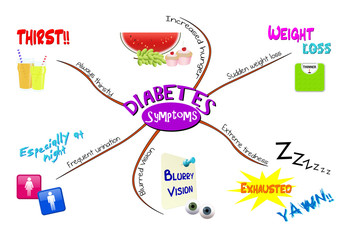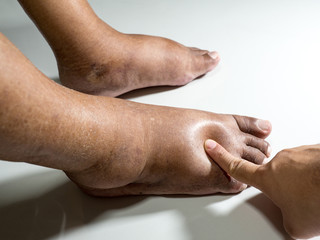Diabetes: what you should know
Diabetes is a disease condition that is associated with a high glucose (sugar) level in the blood for an abnormal period of time. Glucose is a monosaccharide sugar, of which it, breakdown generates energy for the muscle and other tissues, including the brain (glucose is the major source of energy to the brain). after every meal, more especially, after consuming a carbohydrate rich food, the blood glucose level normally tends to rise. the human body breaks down some of these glucose to generate the required energy needed by the body, while the uncatabolized ones are readily converted to glycogen for storage. So, the blood glucose level is usually expected to rise immediately after a meal and drops down a few hours after meal. Therefore, when the glucose level of the blood fails to drop several hours after meal, then the individual is suspected of being diabetic.
Diabetes of three types, namely;
- The Type 1 Diabetes millitus or insulin-dependent diabetes mellitus. This type of diabetes arises a result of the inability of the pancreas to produce enough insulin due to lack of beta cells.
- The Type 2 Diabetes millitus or non insulin-dependent diabetes mellitus. it occurs when the pancreas produces insulin, but insulin fails to bind to its receptor due to modification receptors, which can be caused by a disease condition or obesity.
- Gestational diabetes is the third main form of diabetes, and it occurs during pregnancy where a pregnant women with no previous history of diabetes develop high blood sugar levels.
Symptoms
 the symptoms of diabetes includes;
the symptoms of diabetes includes;- Frequent urination (polyuria)
- Weight loss
- Slow wound healing
- Increased hunger (polyphagia)
- Increased thirst
- Headache
- Fatigue
- Itchy skin
- Frequent infections, such as gums or skin infections and vaginal infections
Causes of diabetes
like we have seen earlier, there are three types of diabetes, and the causes of these three types of diabetes varies from one to the other. Therefore, we are going to list these causes based on the type of diabetes.- Diabetes mellitus type 1; this cause by inadequate production of beta cell by the pancreas, probably due to damage to the pancreas. Some of the food we eat play a role in the development of this disease conditions. And some of these food includes sugary food such as; Margarine, beer etc. Type 1 diabetes can also be caused by heredity, with multiple genes, including certain HLA genotypes, known to influence the risk of diabetes. it can also be triggered by a viral infection.
- Diabetes mellitus type 2; It's characterized by insulin resistance. DM-2 is caused by; Consumption of sugar-sweetened drinks in excess, some fatty food with saturated fat and trans fats, Eating lots of white rice, and other starches, and lack of exercise can lead to type 2 diabetes millitus.
- Gestational diabetes: this type of diabetes is only experienced by pregnant women. During pregnancy, the placenta produces hormones to sustain your pregnancy. These hormones make your cells more resistant to insulin.
Complications
If diabetes remains untreated over a prolonged period of time, it start triggering some of the complications that is associated of diabetes. Some of these complications associated with diabetes are difficult to treat or even manage and do often result to deformity or death. some of these complication are;- Cardiovascular disease. Coronary heart disease with chest pain, heart attack, stroke and blockage of arteries (atherosclerosis) are the list of some of the known cardiovascular diseases that can arise from a prolong diabetes disease.
- Eye disease (retinopathy). Diabetes can damage the blood vessels that supplies blood to the retina, which can lead to blindness.
- Ear problem. People with a prolonged diabetes are usually known to develop hearing problem.
- Nerve damage (neuropathy). Excess sugar can injure the walls of the tiny blood vessels (capillaries) that nourish the nerves, especially in your legs. This can cause tingling, numbness, burning or pain that usually begins at the tips of the toes or fingers and gradually spreads upward.
- Skin diseases. Diabetes slows down wound healing and as such can increase the risk of skin problems, including bacterial and fungal infections.
- Kidney damage (nephropathy). Diabetes can damage the glomeruli, which is responsible for the filtering ability of the kidney. Severe damage can lead to kidney failure or irreversible end-stage kidney disease, which may require dialysis or a kidney transplant.



No comments:
Post a Comment